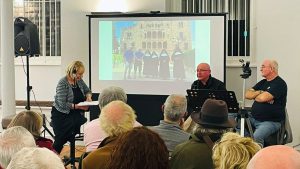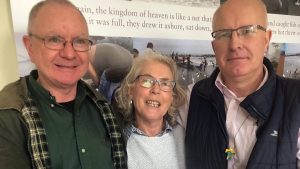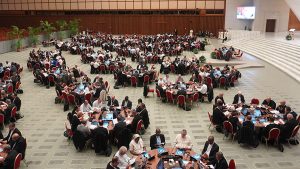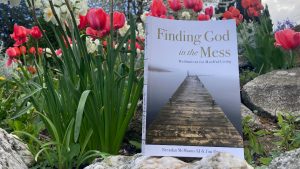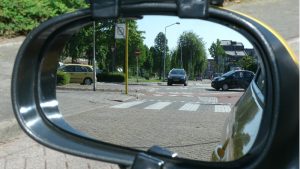“Stay in consolation”

BRENDAN McMANUS :: At the recent audience with the Irish Jesuits, Pope Francis urged them to ‘stay in consolation’ in relation to prayer and the spiritual life. It sounds like a simple word of encouragement, ‘look on the bright side’, or ‘keep your hearts up’, but it is much more than that.
The word ‘consolation” is a technical term from the Spiritual Exercises of St Ignatius and it has a very particular meaning for Jesuits. It is often translated as a felt sense of God’s presence, a sense of light and life, but that is only one of its meanings. It also means to move towards an increase of faith, hope and love; and to act against ‘desolation’ (dryness and emptiness) or being taken to dark and isolating places. Paradoxically you can be going through a difficult time, grieving or acting against injustice, and be in consolation as you know you are doing the right thing. It’s like staying up all night to care for an ill person, not pleasant superficially but satisfying inside.
Equally, you can feel great temporarily escaping from your responsibilities but be in desolation, that is, not really dealing with things. The key to it is recognising the deeper feelings (peace/rightness), not the superficial ones (enjoyment/distaste) inside yourself and which direction you are travelling, towards the light (personal growth, serving others and experiencing genuine happiness) or away from it.
The most helpful metaphor to capture it is that of navigating or walking a mountain trail. Getting lost is a common occurrence but not if you know how to use a compass or GPS and navigate. Staying on track, not getting lost and keeping going in the right direction (e.g., all Camino paths lead to Santiago) is the image used by Margaret Self in her book, Inner Compass. The point is that because we are created by God we have an inbuilt ongoing communication. We all have an inbuilt ‘compass’ or orientation towards the good (God) and also can identify with the sense of unease of getting off track. We have to learn how to read this compass accurately, through being tuned in to our inner moods and feelings, and obviously have to act on this information to orient ourselves.
This process is often summarised as: take stock of where you are (see), work out where the you need to be, where the track is (judge) and get back on the trail (act). Also, getting lost is a common experience for many of us, so let’s not beat ourselves up about it, but concentrate on how to quickly get back on the right road.
The problem is that we have to adapt to changing circumstances all the time and what worked on one occasion, doesn’t necessarily work again. For example, sometimes if I am lost I need to stop, get my bearings and maybe even go back to where I recognise. At other times I need to act fast to avoid danger, falling in a stream or being out in a storm. It all depends on the circumstances as to what the best thing to do is. Sometimes I need to respond with compassion and kindness to people, but sometimes I need to be assertive and strong; reading the situation accurately dictates how I should respond and doing ‘what I always do’ won’t always work. There is no one hard and fast rule but rather lots of ‘rules of thumb’ such as be aware, don’t make hasty decisions, work out what your options are.
The spiritual life is like that: like a footballer that keeps on his/her toes, I need to keep myself balanced and flexible (ready to move in any direction) when faced with different challenges. It is interesting to watch Jesus in the Gospel stories and how he is always out on the road, meeting new situations and challenges, and responding in creative and loving ways.
Consolation is essentially about the direction of travel or being on track; is it bringing me towards God or away from God; towards life, people and connection, or into isolation, rumination and withdrawal? The key question when facing difficulty is always what do I need to do to get back on track, how do I deal with the obstacle in my path, what will it take to solve this issue?
Therefore, when Pope Francis says ‘stay in consolation’, he means keep your ‘compass’ working well through prayer and reflection; don’t be naive about the challenges you face, but be adaptable and nimble on your feet; and recognise the greatest trap of all is feeling that you are totally lost, that God has abandoned you that you are useless and have no options. The ‘inner compass’ always indicates the right direction.
See this summary of Margaret Silf’s main points » in Inner Compass on the Loyola Press website.


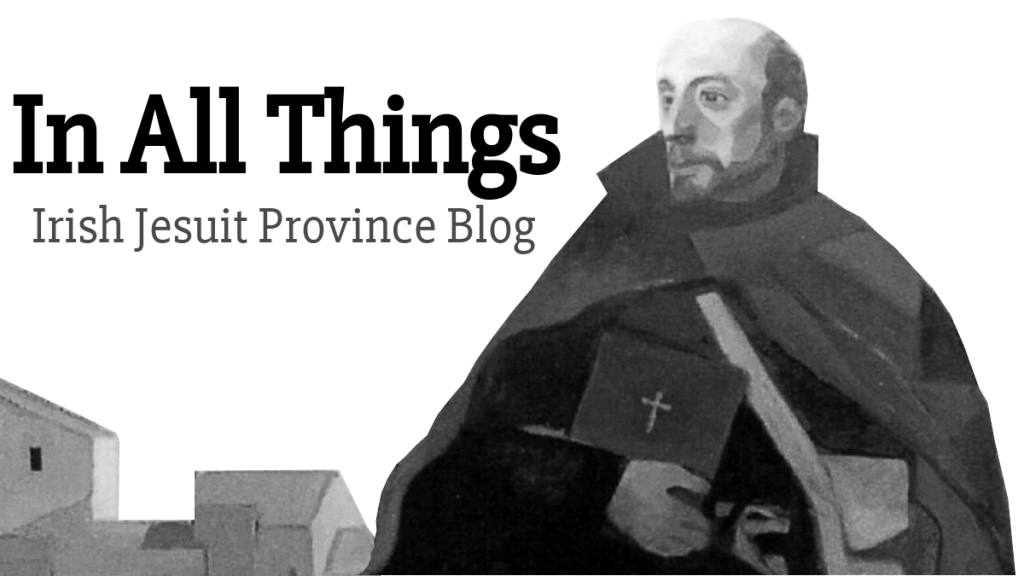
 Fermanagh-born Brendan McManus SJ works in the area of spirituality and spiritual accompaniment. He is the author of Redemption Road: Grieving on the Camino, a highly-praised personal reflection on healing and recovery. It deals with Brendan's experience on the Camino pilgrimage as part of his effort to come to terms with his brother's suicide.
Fermanagh-born Brendan McManus SJ works in the area of spirituality and spiritual accompaniment. He is the author of Redemption Road: Grieving on the Camino, a highly-praised personal reflection on healing and recovery. It deals with Brendan's experience on the Camino pilgrimage as part of his effort to come to terms with his brother's suicide.
